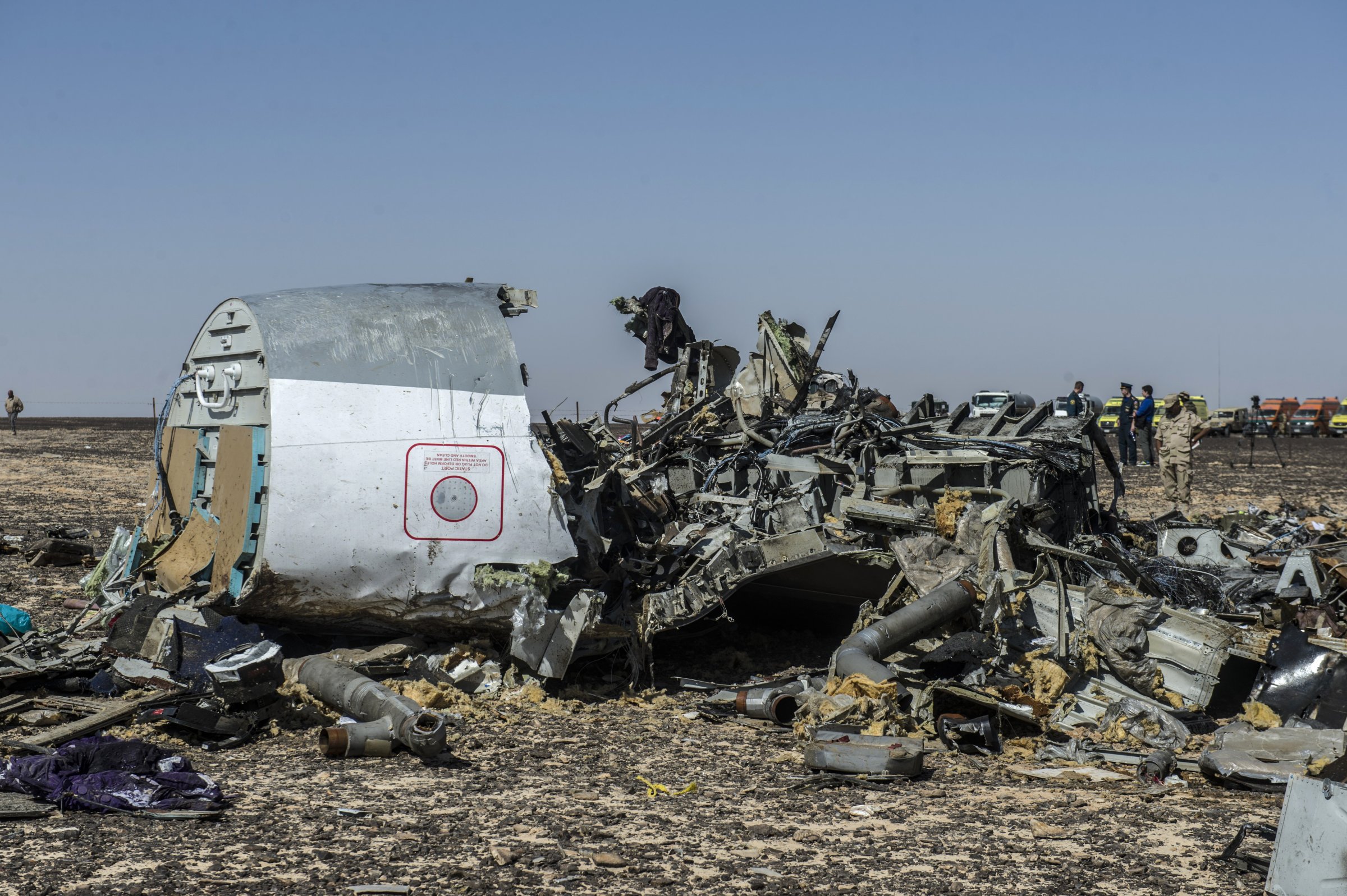
A slew of international airlines have stopped flying over the Sinai Peninsula this week in response to the mysterious crash of a Russian commercial jet with more than 200 people on board. It’s still not clear what might have caused the crash, though security officials in Britain and the U.S. have raised growing concerns that it was brought down by a bomb. Halting service over a conflict zone may seem like an easy call, but aviation safety experts say not every airline is equipped with the resources to identify danger zones.
Regulatory authorities like the U.S. Federal Aviation Administration (FAA) provide the first line of defense when it comes to managing security risks. The FAA issues notices and regulations restricting operations by U.S. airlines in various regions in the world. Some are blanket restrictions like a federal rule prohibiting all travel over Iraq, where the country’s central government faces militants from the Islamic State (ISIS) with extensive military capability.
But determining where a commercial plan can fly safely is more complicated than simply identifying conflict zones. Regulators rely on intelligence operations to understand what weapons are in use on the ground and whether they pose any risk to jets. In many cases, like flights over Afghanistan, regulators require pilots to maintain a minimum altitude deemed safe from possible ground fire. Regions within Egypt, Libya, Syria, Somalia, Yemen, Mali, North Korea and Ukraine all face federal restrictions of one form or another.
Government regulators aren’t the only ones deciding when U.S. pilots should stop flying over a certain region. Large airlines rely on an extensive security teams that works in tandem with airline operations officials to develop flight plans on a day-to-day basis. Larry Wansley, a former managing director of corporate security at American Airlines, described a collaborative process on security measures between airlines, the FAA, the Transportation Security Administration (TSA) and other government agencies. Airlines had secure lines of communication with government officials where confidential information could be shared, he said.
“We always wanted to be not only responsive but also proactive,” said Wansley, a former FBI agent and hostage negotiator. “We wanted to be ahead of the game, address trends, go through analysis, and determine the best way to attack a particular issue.”
In some cases, airline security operations have led carriers to modify their service even while the FAA has remained publicly mum. Delta and United Airlines both cancelled flights to Israel last summer after a rocket landed near Tel Aviv’s Ben Gurion International Airport. (The FAA later ordered the airlines to halt flights). Other countries, particularly in the developed world, maintain similar standards as the FAA. The European Aviation Safety Agency (EASA) oversees safety concerns for operators from the European Union. The Civil Aviation Administration of China (CAAC) plays the same role for Chinese operators.
“Each country has its own aviation safety authority and its own security authority,” said Jacques Astre, an airline consultant at the Wicks Group. “Each country has a responsibility to mandate its airlines not to fly in [a dangerous] region.”
But small airlines, particularly those in developing countries, lack the same standards and security operations that help make U.S. airlines among the safest in the world. And while U.S. and European airlines avoid flying over certain dangerous air space, others may keep operating as usual. British Airways and all U.S. carriers were among the airlines avoiding flying over eastern Ukraine when Malaysia Airlines Flight 17 was shot down over a war zone in Crimea last year.
“I would expect every airline to have that capability and be committed to it,” said Wansley of strong security operations. “But realistically speaking there are some airlines around this world that are not even close. And those are some I would not fly on.”
More Must-Reads from TIME
- Donald Trump Is TIME's 2024 Person of the Year
- Why We Chose Trump as Person of the Year
- Is Intermittent Fasting Good or Bad for You?
- The 100 Must-Read Books of 2024
- The 20 Best Christmas TV Episodes
- Column: If Optimism Feels Ridiculous Now, Try Hope
- The Future of Climate Action Is Trade Policy
- Merle Bombardieri Is Helping People Make the Baby Decision
Write to Justin Worland at justin.worland@time.com